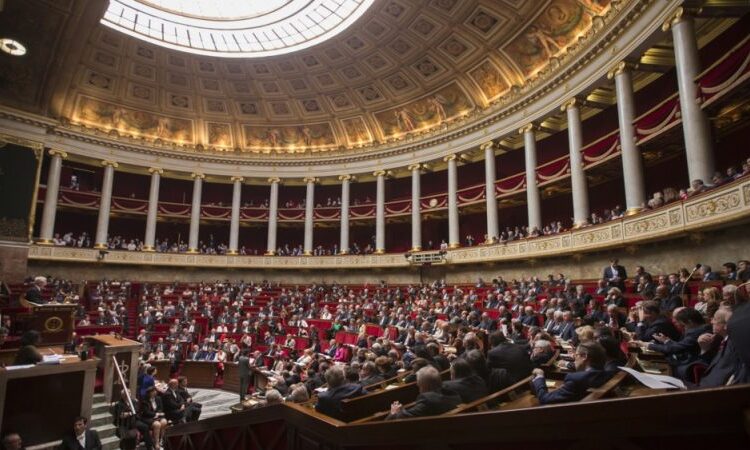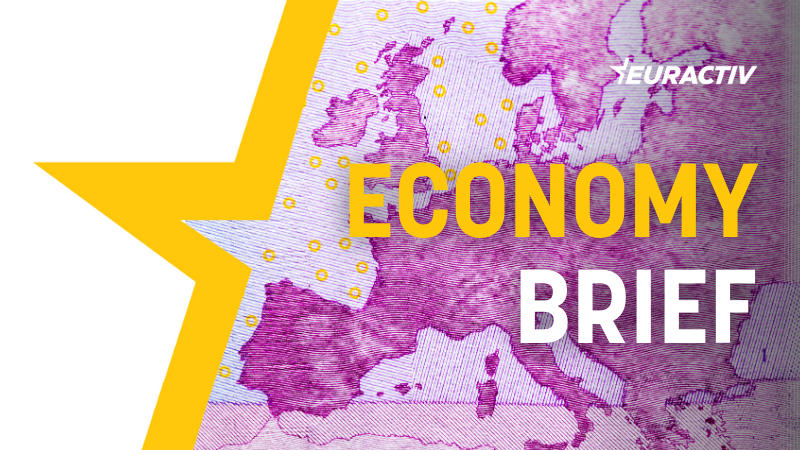
Germany’s demand that ‘common numerical benchmarks’ be added to the EU economic governance reform is both “ideological and uncorrelated from reality”, a report by French MPs published on Wednesday (11 October) argues, calling for more transparency with national parliaments.
The report welcomes the economic reform, which seeks to bring EU public debt back to sustainable levels while giving member states enough leeway to invest in the twin digital and green transitions, as a necessary step forward.
However, its authors, centrist Alexandre Holroyd and socialist Marietta Karamanli, have questioned whether it will be able to meet these objectives as it currently stands.
The reform, first introduced by the Commission in April, looks to provide member states with more flexibility over their debt reduction plans that cater for specific economic contexts – after heavy criticism that previous iterations of the rules had been austerity-inducing and unfit to meet the demands to facilitate the green transition.
The 3% public deficit threshold will remain, however. Countries will hold direct dialogues with the Commission to best define what sustainability plan fits their needs.
Common benchmarks? Non merci
In yet another reiteration of the French opposition against Germany’s ‘common benchmarks’, both authors argue they are “strongly opposed” to a numerical threshold, arguing that it “runs counter to the spirit of the reform, which looks to focus on each member state’s [budgetary] peculiarities”.
Under the German proposal – added into the Commission’s reform proposal at the last minute – countries with “excessive” deficits would have to lower their structural primary balance by at least 0.5% of GDP per year.
“Why 0.5% rather than 0.1% or 0.7%?” the French MPs write, summarising the whole German stance as “ideological and uncorrelated from reality”.
Other constraints added by the Germans include the fact that the fiscal adjustment cannot be postponed to the final years of the national fiscal plans, and countries with relatively high debt levels would have to have lower debt levels after the adjustment period than before.
In a report published in September, the EU think-tank Bruegel, running calculations under the new set of rules including the German proposal, found it would require France – at threat of an Excessive Deficit Procedure (EDP) in the Spring, with a current deficit at over 4% – to cut expenditures, or increase revenues, by a whopping €30 billion annually.
Transparency? Oh oui
The co-rapporteurs deplored the lack of effective communication between the government and national parliamentarians, including sharing documents that inform EU negotiations.
According to the authors, they were told whilst drafting the report that an Excel sheet had been shared with every member state with projections as to where each would stand under the new rules.
“In spite of repeated requests made to competent authorities […] it never was possible to gain access to this document,” the report reads. “It is simply mind-boggling that the rapporteurs had to go through MPs from foreign parliaments to gain [such] access.”
They recommend that a new paragraph be added to the French Constitution, which Emmanuel Macron announced would be due to go under review before the end of his term, to make it compulsory for the government to share all EU documents with the Parliament “without delay” – and organise a Parliamentary debate before the new rules are adopted.
In the same vein, the report’s authors also call for a clarification of the way the Debt Sustainability Analysis (DSA), which the Commission would use to draft country-specific debt reduction plans, is calculated – the actual maths involved is so far unknown.
Green investments ‘golden rule’? Peut-être
The rapporteurs appear to disagree, however, on how to ensure the new rules do not limit public investments.
Karamanli goes as far as suggesting excluding green investments from public debt and deficit calculations – a ‘golden rule’ which could be expanded to defence and strategic research sectors in some instances.
Holroyd disagreed, however, as he is concerned that this could open a “heavily-politicised methodological debate” over what constitutes a green investment and what doesn’t – and put at threat any hope to strike an EU-wide deal before the 2024 elections.
Other ways, according to him, could include “the use of the DSA to support transition investments [or] the creation of a carbon budget framework”, he told Euractiv.
The report comes as debates get underway over the 2024 French budget, which the executive claims is focused on “accelerating” public debt reduction. The deficit is due to fall to 4.4% in 2024. Meanwhile, debt levels are due to stay put at 109.7% of GDP in 2024, according to forecasts by the French economy ministry, and will reach an expected 108.1% by 2027.
[Edited by János Allenbach-Ammann/Nathalie Weatherald]











